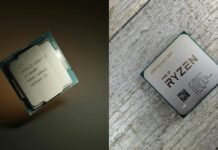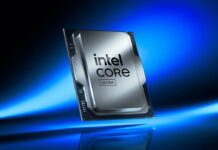When you’re looking to buy a budget laptop, one of the key decisions you have to make is whether to go with an AMD processor or an Intel processor. Earlier the processor market used to be a one-way race with Intel crushing its opponents. Things have largely changed over the course of the last few years and AMD has proven to be a worthy competitor for Intel.
In this article, we are taking a closer look at both these companies to find out who among them is the best choice for you if you are going to buy a budget laptop. Let’s weigh-in the positives and negatives of their CPU offerings to find out the answer.
But first, tell me what is a budget laptop?
Budget laptops in Indian context fall between a price range of Rs 30,000 and Rs 60,000. Laptops below Rs 30,000 are considered as cheap or entry-level laptops, laptops between 60,000 and 80,000 are considered as midrange and anything above this price is touted as the premium laptops.
Most of the laptops sold in India fall under the budget segment and they hold a substantial market share. For an average Indian, the most affordable one is a laptop falling under this price range. Hence it is important to know which processor is the best for a budget laptop.
Intel and AMD – The two competitors
When someone hears the term CPU or Processor, the first name that comes to their mind probably is Intel. Such is the dominance of Intel in people’s mind and there are solid reasons for it as well.
This silicon valley based semiconductor giant has pioneered the technology of processors. Intel played a crucial role in the advancement of computer technology with their innovations starting from as early as the 1970’s.
In 1971, they launched the Intel 4004, the world’s first commercially available CPU. From there on, it was always Intel who were on the cutting edge in terms of processor technology.
AMD, the abbreviation of Advanced Micro Devices entered the CPU market in 1975 with the release of a reverse engineered clone of Intel 8080. Both these companies have been in a battle for processor supremacy since then. AMD also holds substantial market share in discrete graphics card along with Nvidia.
Where Intel has focused on higher clock speeds and efficiency with low core counts, AMD has focused on upping its core counts and boosting multi-threaded performance. AMD’s Accelerated Processing Units (APUs) were very popular among entry-level laptop buyers.
But AMD has been playing second fiddle to Intel in high-end processors till recently as their products had fallen behind significantly in both single-core and multi-core CPU performance benchmarks.
All these things changed when they launched the first Ryzen processors in 2017. The processors in the Ryzen series where built on a newer architecture called Zen Architecture. This improved the performance metrics of AMD processors considerably and that resulted in significant improvement in their market share as well.
This unexpected comeback of AMD added a bit of confusion among the consumer’s mind as well. Now instead of choosing between one or two processors of Intel, there came the choice of AMD as well.
The Budget Processor of Intel and AMD
Intel has an array of processors with varying specifications and use cases in the budget laptop segment in India. Their ‘Core’ series of the processor in their latest generation, that is 8th Gen comes in either i3, i5 or i7 based on the number of cores. There are laptops with 7th Gen processors also in the market.
AMD, on the other hand, has 2 series of processors in budget laptops. The AMD Ryzen 3 and the AMD Ryzen 5. This is the first ever generation of Ryzen series processors.
The AMD Ryzen 3 competes with Intel Core i3 in the lower segment of budget laptops whereas the AMD Ryzen 5 competes with Intel Core i5 and some variants of Core i7 in the upper segment of budget laptops.
Intel’s budget offerings:
- Core i7 8th Gen 8550U
- Core i7 7th Gen 7500U
- Core i5 8th Gen 8250U
- Core i5 7th Gen 7200U
- Core i3 8th Gen 8130U
- Core i3 7th Gen 7130U, 7100U, 7020U
AMD’s budget offerings:
- AMD Ryzen 3 Dual Core 2200U
- AMD Ryzen 5 Quad Core 2500U
Let’s tabulate the specification of AMD Ryzen 5 2500U and it’s direct Intel competitors to get a better understanding.
| AMD Ryzen 5 2500U | Core i7 8th Gen 8550U | Core i7 7th Gen 7500U | Core i5 8th Gen 8250U | Core i5 7th Gen 7200U | |
|---|---|---|---|---|---|
| Frequency | 2.00 GHz | 1.80 GHz | 2.70 GHz | 1.60 GHz | 2.50 GHz |
| Turbo (1 Core) | 3.60 GHz | 4.00 GHz | 3.50 GHz | 3.40 GHz | 3.10 GHz |
| Cores | 4 | 4 | 2 | 4 | 2 |
| Hyperthreading | Yes | Yes | Yes | Yes | Yes |
| Overclocking | No | No | No | No | No |
| Cache | 4 MB | 8 MB | 4 MB | 6 MB | 3 MB |
| CPU Benchmark Score | 7328 | 8310 | 5164 | 7683 | 4611 |
The CPU Benchmark Score clearly indicates that the 8th generation of Core i5 and AMD Ryzen 5 are neck to neck in terms of performance metrics (7683 and 7328). But the 8the Gen Core i7 processor easily outperforms the Ryzen 5.
The benchmark scores of 7th gen i7 and i5 processors show that it is not a good idea to purchase a laptop having them over AMD Ryzen 5. The better performance of AMD is clearly daylights ahead.
Now let’s tabulate the specification of AMD Ryzen 5 2500U and its competitors. Take note that Intel Core i3 7th Gen has 3 variants currently selling in India on different laptops.
| AMD Ryzen 3 2200U | Core i3 8th Gen 8130U | Core i3 7th Gen 7130U | Core i3 7th Gen 7100U | Core i3 7th Gen 7020U | |
|---|---|---|---|---|---|
| Frequency | 2.50 GHz | 2.20 GHz | 2.70 GHz | 2.40 GHz | 2.30 GHz |
| Turbo (1 Core) | 3.40 GHz | 3.40 GHz | Not Supported | Not Supported | Not Supported |
| Cores | 2 | 2 | 2 | 2 | 2 |
| Hyperthreading | Yes | Yes | Yes | Yes | Yes |
| Overclocking | No | No | No | No | No |
| Cache | 4 MB | 4 MB | 3 MB | 3 MB | 3 MB |
| CPU Benchmark Score | 4477 | 5066 | 4249 | 3779 | 3521 |
There isn’t a lot differentiating between them in terms of specification but based on the Benchmark score we can conclude that the 8th Gen Core i3 outperforms the AMD Ryzen 3 with a clear margin.
The Ryzen 3 2200U has a benchmark score of 4477 which is better than all the 3 processor variants of 7th Gen Core i3 including the 7130U. The 7130U is seen in many low budget laptops in India and it should be noted that AMD Ryzen 3 is a better choice than this one.
Let’s talk about the price of AMD and Intel processors
As I have shown above, AMD’s processors are still not powerful enough to beat the latest generation of Intel’s processors. But one thing that goes with AMD’s favor is their pricing of processors.
AMD Ryzen 5 2500U is cheaper than Intel Core i7 8550U and 8250U as Intel charges a premium for their better performing processors. This, in turn, increases the cost of laptops bundling Intel processors.
If you’re looking for a value for money proposition or if you are casual user and every penny saved is important for you, then the AMD Ryzen 5 is a great option worth considering. But mind you, you’re taking performance dent for saving some money upfront.
Bottom Line
The gap between Intel and AMD are reduced considerably in the last 2 years with the arrival of Ryzen series. Intel now has a genuine competition even though they are still leading the race of processor supremacy.
As a budget laptop buyer, unless you’re not getting the latest series of Intel processors, which is 8th Gen right now, it is not a foolish decision to buy a laptop having AMD Ryzen processor.
If your budget is around Rs 30,000 – Rs 45,000, the Ryzen 3 2200U is just as good as Intel Core i3 8130U and if your budget is between Rs 45,000 and 60,000, an AMD Ryzen 5 2500U is a worthy alternative for the 8th Gen Core i5 8250U.







